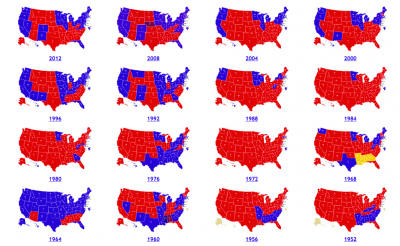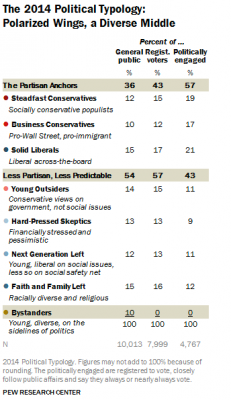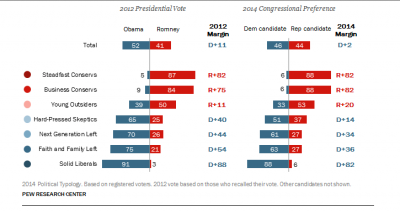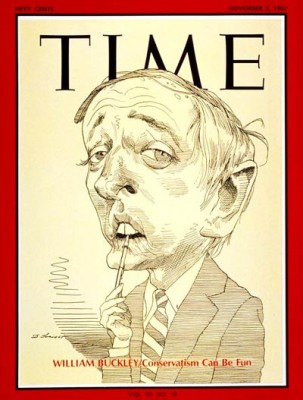
There’s a long road to the 2016 election, but it will be interesting to see how it plays out. Much is being said about changing state demographics and psychographics and how it will affect the electoral map. Chris Ladd sounded the alarm in his post-2014 analysis, noting the electorally rich Blue Wall and the electorally sparse Red Fortress. Many argue that leadership can cause blue states to turn over, but the swing state math means putting a diverse set of states into play. This would mean states like Colorado, Nevada, and New Mexico from the West; Iowa, Wisconsin, and Ohio from the Midwest; Virginia; and Florida.
The ideological rhetorics in #hashtaggable quips have solidified over the years to create meanings for ideological clusters. Perhaps the thorniest issue for both parties will be the size and scope of the government. Pew has been developing political typologies for about 25 years and the latest highlights political fragmentation:

The GOP is faced with two factions that want different things. The Steadfast Conservatives and Business Conservatives differ on social issues and immigration. There isn’t a core, but 2 cores that are distinct. The populist aspect of the Steadfast Conservatives can make Business Conservatives uneasy when there’s talk of going after crony capitalism and use of rhetoric like Codevilla’s “country class” versus “ruling class” dichotomy. Republicans could court Young Outsiders, but would need to moderate on social issues. The Faith & Family Left are religious and have concerns about the country’s morality, but are proponents of the social safety net, as are the Hard-Pressed Skeptics. Democrat core typologies also create factions of Solid Liberals, Next Generation Left, and the Faith & Family Left.
I think we’re guaranteed to see the Obama Administration systematically lobbing issues at the right to create tensions between Steadfast and Business Conservatives. I would surmise that part of the strategy is to get Republicans to despise their own opposing faction and set up a particularly brutal primary season with the tagline of Who Is Most Conservative? Already, the Twittersphere and punditsphere are calling into question Chris Christie or Jeb Bush’s qualifications as true conservatives. In the power struggle, it’s not as if either side will defect from the GOP (both came out or Romney in 2012 & Republican Congressional candidates in 2014). The danger is turning off the other political typologies. While Republicans made inroads with the 2014 election with respect to all of the typologies, it was without a center ring battle of what the party represents and its platform:

The Democrats might have a few more degrees of freedom with respect to strategizing in the next 20 months. They can never be a “small” or “anti” government party, but they could articulate being a “smart” government party knowing full well that they will never convince their detractors. This would allow inroads in swing states into the Next Generation Left, the Hard-Pressed Skeptics, and the Young Outsiders. Of course, a shift could occur and these political typologies might morph or dissolve with new ones forming.
It will be interesting how things shape up in 2015.

